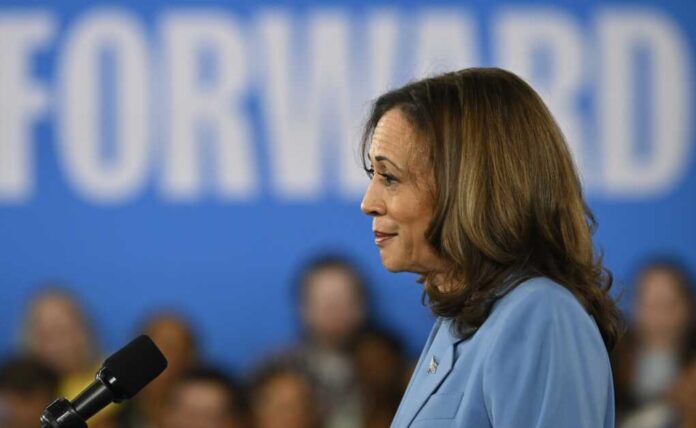Biden Team SLAMS Harris – Internal War Erupts

Story Snapshots
- Former Vice President Kamala Harris’s memoir, 107 Days, has reignited debate within the Democratic Party.
- The book details her brief 2024 campaign as the Democratic nominee and includes references to internal discussions about President Biden’s health
- The release has drawn mixed reactions: some Democratic strategists view it as a corrective to the party’s narrative, while others see it as divisive
- The controversy underscores broader questions about party unity, presidential succession planning, and transparency in campaign leadership
Kamala Harris’s book
The release of Kamala Harris’s book, 107 Days, sparked internal debate within the Democratic Party. In the book, Harris describes her 2024 presidential campaign and references discussions about President Biden’s health, accounts that several former Biden aides have publicly disputed. The controversy is amplified by its timing and the public airing of grievances at the party’s highest levels.
In June 2024, concerns over President Biden’s cognitive health intensified after what many commentators described as a faltering debate performance. Reports by Axios and journalist Jonathan Martin noted that such concerns had been circulating among some Cabinet officials and lawmakers for months prior. The White House, guided by a group nicknamed “the Politburo,” actively shielded Biden from scrutiny, restricting his interactions with both the press and senior officials. This internal strategy came to a head when Biden withdrew from the race, endorsing Kamala Harris as his successor.
Harris was formally endorsed as the Democratic nominee in July 2024 after Biden suspended his campaign. Analysts such as Amy Walter noted that Harris had little time to consolidate party support or build a general election operation, factors that contributed to her eventual loss to Donald Trump.. The fallout from this loss, and her subsequent portrayal of events in her book, has highlighted significant rifts within the Democratic Party. Political analysts, including Jonathan Chait, described Harris’s account as an effort to challenge the established narrative, while other Democratic strategists criticized it as potentially divisive ahead of future elections.
The Politburo and Its Influence
The Politburo, consisting of Biden’s closest advisors like Mike Donilon and Ron Klain, played a pivotal role in managing the optics around Biden’s health. They restricted access to the President and made strategic decisions to maintain control over his public image. However, this insularity and lack of transparency have been key points of contention in the aftermath of the Democratic Party’s 2024 election defeat. The narrative of concealment and control has called into question the decision-making processes at the highest levels of the party.
Harris’s book highlights these internal dynamics, raising broader questions noted by scholars such as Dr. Lara Brown of George Washington University about succession planning and how presidential health issues should be handled in future campaigns. The Democratic Party now faces the challenge of addressing these issues to restore trust within its ranks and with the public. The controversy has spurred discussions on how future campaigns should be managed, particularly regarding transparency and leadership accountability.
Sources:
Original Sin (Tapper and Thompson book)
Axios Report on Biden’s Book
Axios Coverage of Special Counsel Audio
Axios Report on Town Hall Event


